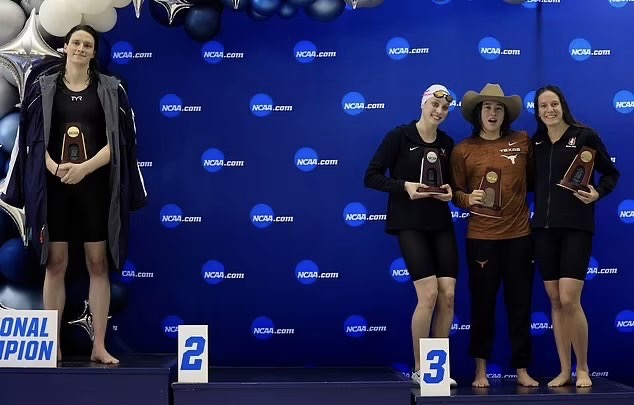This Tuesday’s Supreme Court Case:
In Mahmoud v. Taylor, a group of religious parents in Montgomery County, Maryland, are standing up for something pretty basic: the right to raise their children according to their faith. But the school district isn’t making that easy. It introduced storybooks and lessons about gender identity and sexuality to elementary school kids—without even telling parents ahead of time, and without offering any way to opt out.
That’s a problem. These families aren’t trying to stir up trouble—they’re simply asking to be informed and allowed to make decisions that line up with their religious convictions. This is about the constitutional right of parents to direct the upbringing of their children, especially when it comes to moral and spiritual formation.
The parents point to Wisconsin v. Yoder, where the Supreme Court said Amish families had a right to pull their kids from school to preserve their religious way of life. The principle is the same here. Just like in Yoder, these parents aren’t trying to shut down education—they’re asking the state to respect their religious boundaries.
Even more, the school’s policy isn’t neutral. It selectively targets families of faith by refusing to accommodate them. That’s exactly the kind of government overreach the Supreme Court rejected in Church of the Lukumi Babalu Aye v. City of Hialeah. When the government targets religion—or refuses to treat religious people with equal dignity—it’s supposed to face the highest level of scrutiny. And this policy doesn’t come close to meeting that standard.
During the Supreme Court oral arguments in Mahmoud v. Taylor, it was revealed that Montgomery County Public Schools introduced concepts such as “preferred pronouns” and the idea that a child’s gender or sex is “assigned at birth” to young students, including those aged 4 to 6.
Eric Baxter, the attorney representing the parents, stated that the school district mandated instruction teaching that “doctors guessed at their sex when they were born” and that disagreeing with this notion is considered “hurtful and unfair.”
Additionally, one of the books included in the curriculum, Born Ready: The True Story of a Boy Named Penelope, discusses a child’s experience with gender identity and pronoun preferences.
The parents argue that such instruction conflicts with their religious beliefs and that they should have the right to opt their children out of these lessons..
Let’s be clear: these parents aren’t asking to ban books or rewrite the curriculum. They’re asking for a simple, commonsense solution—just give them a heads-up, and let them opt out when necessary. That’s not unreasonable. In fact, it’s the least the school could do to respect the diversity it claims to celebrate.
The Supreme Court heard oral arguments on April 22, 2025, and a decision is expected this summer. At stake is a principle as old as the Constitution: parents, not bureaucrats, have the right to shape their children’s moral and spiritual education. Let’s hope the Court gets it right.
But wait! I’ve got a simpler solution: OPT-IN
Before any of these controversial LGBTQ ‘lessons’ are taught: Make Parents Opt Their Kids IN to LGBTQ++ content. Then for those who do, you can have a special time for their instruction. The problem, of course, is a lot of this controversial content has been smuggled into math, science, reading & writing curriculum. That needs to stop.
Hopefully, the Supreme Court will side with the parents here, but it’s hard to say how the justices will ultimately rule. Still, it really shouldn’t even come down to a court case. Parents shouldn’t have to jump through hoops to opt their kids out of content they find inappropriate—especially when it comes to sensitive, sexual, or ideological material. Honestly, a lot of this content shouldn’t be in schools to begin with.
If schools are going to insist on including materials about gender identity, preferred pronouns, and LGBTQ themes—especially for very young kids—then it should be an OPT-IN system, not opt-out. In other words, parents who want their children to engage with that kind of material should be the ones who take action, not the other way around. Most parents, especially those with preschoolers or children with special needs (like the ones in this case), aren’t okay with their kids being exposed to content that doesn’t match their age or their family’s beliefs.
And let’s be honest—if schools did switch to an opt-in model, you’d probably find that very few parents would sign their kids up for this. That would calm down the outrage and allow the handful of families who do want that kind of instruction to have it—maybe in a separate elective or even as an after-school program.
Better yet, make it a rule that anytime a teacher or librarian wants to introduce content dealing with sex, gender, or identity, they have to get direct, written permission from parents first. Put the responsibility where it belongs: on the schools and educators. Let them explain exactly what’s being taught and why they think it’s helpful. That’s the kind of transparency parents deserve.
If you agree with this OPT-IN Solution, please share this post with others. Thanks.
A Longer Term Solution is Universal School Choice
As of April 2025, 14 U.S. states have enacted universal school choice programs, allowing all or nearly all K–12 students to access public funds for private education expenses, including tuition, homeschooling, and other approved costs. Here’s an overview of these states and their programs:
States with Universal School Choice Programs
- Arizona
Pioneered universal school choice in 2022 with its Empowerment Scholarship Account (ESA) program, offering funds to all students regardless of income or background.
- Florida
Expanded its Family Empowerment Scholarship in 2023 to include universal eligibility, allowing all students to apply for private school funding.
- West Virginia
Implemented the Hope Scholarship Program in 2021, providing ESAs to all students, making it one of the earliest adopters of universal school choice.
- Iowa
Launched the Students First Act in 2023, establishing ESAs for all students to attend private schools.
- Arkansas
Passed the LEARNS Act in 2023, creating a universal ESA program for students statewide.
- Utah
Enacted H.B. 215 in 2023, establishing a universal ESA program open to all students, regardless of income or disability status.
- Indiana
Expanded its Choice Scholarship Program in 2023 to remove income limits, effectively making it a universal voucher program.
- North Carolina
Approved legislation in 2023 to make its Opportunity Scholarship Program universally available to all K–12 students.
- Ohio
Expanded its EdChoice Scholarship Program in 2023 to allow all students to apply, regardless of income or school performance.
- Oklahoma
Implemented the Oklahoma Parental Choice Tax Credit in 2023, providing universal access to private school funding through tax credits.
- South Carolina
Passed legislation in 2023 to establish a universal ESA program, offering funds to all students for private education expenses.
- Tennessee
In January 2025, enacted the Education Freedom Act, creating a universal ESA program that provides families with $7,000 per student for tuition and other educational expenses.
- Idaho
In early 2025, approved the Idaho Parental Tax Credit, offering families up to $5,000 per child for private educational expenses, marking the state’s first private school choice program.
- Wyoming
Passed the Wyoming Freedom Scholarship Act in 2025, establishing a universal ESA program providing families with $7,000 per student for education-related expenses.
States with Recent or Pending Universal School Choice Legislation
- Texas
In April 2025, Texas lawmakers approved a $1 billion education bill establishing a private school voucher program, allowing families to use public funds for private school tuition, homeschooling, or virtual learning. The program is expected to serve up to 90,000 students in its first year, with potential expansion in the future.
- New Hampshire
Legislation is advancing to remove income limits from the state’s Education Freedom Account program, potentially making it universally accessible.
- Missouri
House Bill 711, proposing a voluntary open enrollment program and universal ESA eligibility, has passed the House and is under consideration in the Senate.
These developments reflect a significant shift in education policy, with a growing number of states embracing universal school choice to provide families with more educational options.
At a minimum parents need to require local schools and school boards to support OPT-IN before any LGBTQ+ content is presented. Parents can then choose what they prefer for their young kids.
[Sources: Becket Legal Defense Fund & Supreme Court Oral Arguments]
+++
Parents: Take Charge!


